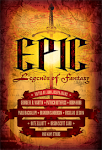

[Lake Nipissing]
In 1615, soon after Champlain’s arrival with the four Recollects, he took three of the priests into the country of the Hurons on Georgian Bay going through the Peterborough area. With his native guides he explored further up the Ottawa River and reached Lake Nipissing (photo).

[Recollet Rapids, French River, Ontario]

[French River, Ontario]
He then followed the French River (photos) until he reached the fresh-water sea he called Lac Attigouautau (now Lake Huron) (photo). Champlain continued to work to improve relations with the natives promising to help them in their struggles against the Iroquois.

[Lake Huron is shaded area]
At this time the conflict grew between the Iroquois and the Huron who were supported by the French over the fur trade and other trade goods.
The people known as Hurons by the French called themselves the Wendat which means "Dwellers of the Peninsula" or "Islanders", because the Wendat homeland was bordered on three sides by the waters of Georgian Bay and Lake Simcoe.** The name Huron comes either from the French huron ("ruffian", "rustic"), or from hure ("boar's head"), because, according to tradition, French sailors thought that the bristly hairstyle of Wendat men resembled that of a boar.**

[Lake Simcoe]
Lake Simcoe is a remnant of a much bigger, prehistoric lake known as Lake Algonquin.
Later that summer, at Cahiagué (on Lake Simcoe) Champlain joined a Huron raiding party. The party passed Lake Ontario at its eastern tip where they hid their canoes and continued their journey by land. They followed the Oneida River (photo) until they found themselves at an Onondaga fort. Pressured by the Hurons to attack prematurely, the assault failed. Champlain was wounded twice in the leg by arrows, one in his knee. The attack lasted three hours until they were forced to flee. Champlain was carried back to a town of the Hurons, and due to the severity of the wounds was forced to spend the winter with them.*

[Oneida River]
During his stay Champlain set off with them in their great deer hunt, during which he became lost and was forced to wander for three days living off game and sleeping under trees until he met up with a band of Indians by chance. He spent the rest of the winter learning "their country, their manners, customs, modes of life". On May 22, 1616, he left the Huron country and was back in Quebec on July 11 before heading back to France on July 2.*
CONTINUED
Sources: http://en.wikipedia.org/wiki/Samuel_de_Champlain
*http://www.samueldechamplain.com
The Penguin History of Canada by Robert Bothwell, pp. 32.
The Illustrated History of Canada, edited by Craig Brown pp. 101.
http://en.wikipedia.org/wiki/French_and_Iroquois_Wars
http://en.wikipedia.org/wiki/Huron
**Trigger, Bruce G. The Children of Aataentsic: A History of the Huron People to 1660. Kingston and Montreal: McGill-Queen's University Press. 1987. ISBN 0-7735-0627-6
Photo Credits: Wikipedia.














6 comments:
Barbara, power and services unstable at moment, hoping to get through here.
We are safe and well, severe, extensive bushfires, destruction and fatalities are to our southeast.
Lesser bush/park and property destruction fires to our west, (much closer), and also people killed, businesses/homes destroyed 2 hours south.
We are not in any danger, but weather is extreme, heat of above 40c to 47.8c for weeks, then fierce windstorms, gale force.
Nobody stood a chance, it was extraordinary weather and it has bought heartbreak.
People trying to pick up the pieces of their lives, worst ever natural disaster, here very southern part of Oz, and terrible floods in northern Queensland.
Hopefully services will begin to get more consistent. Everything in overload.
All the best, hope it's not too cold there.
Pam
Barbara : Your narration is vivid and the choice of images makes your post complete.
Pam, thank you for taking the time to leave me a note. Take care and my thoughts are with you and your family.
The wilderness area at the time would have been incredibly easy to be lost in. To Champlain's credit, he survived three days and probably could have made it a lot longer.
Thomas, Champlain provided the motivation to France to send the first settlers after his explorations and the journals he published about his experiences.
Bernard, yes, it would have been nearly all forest with thick ground cover.
Post a Comment